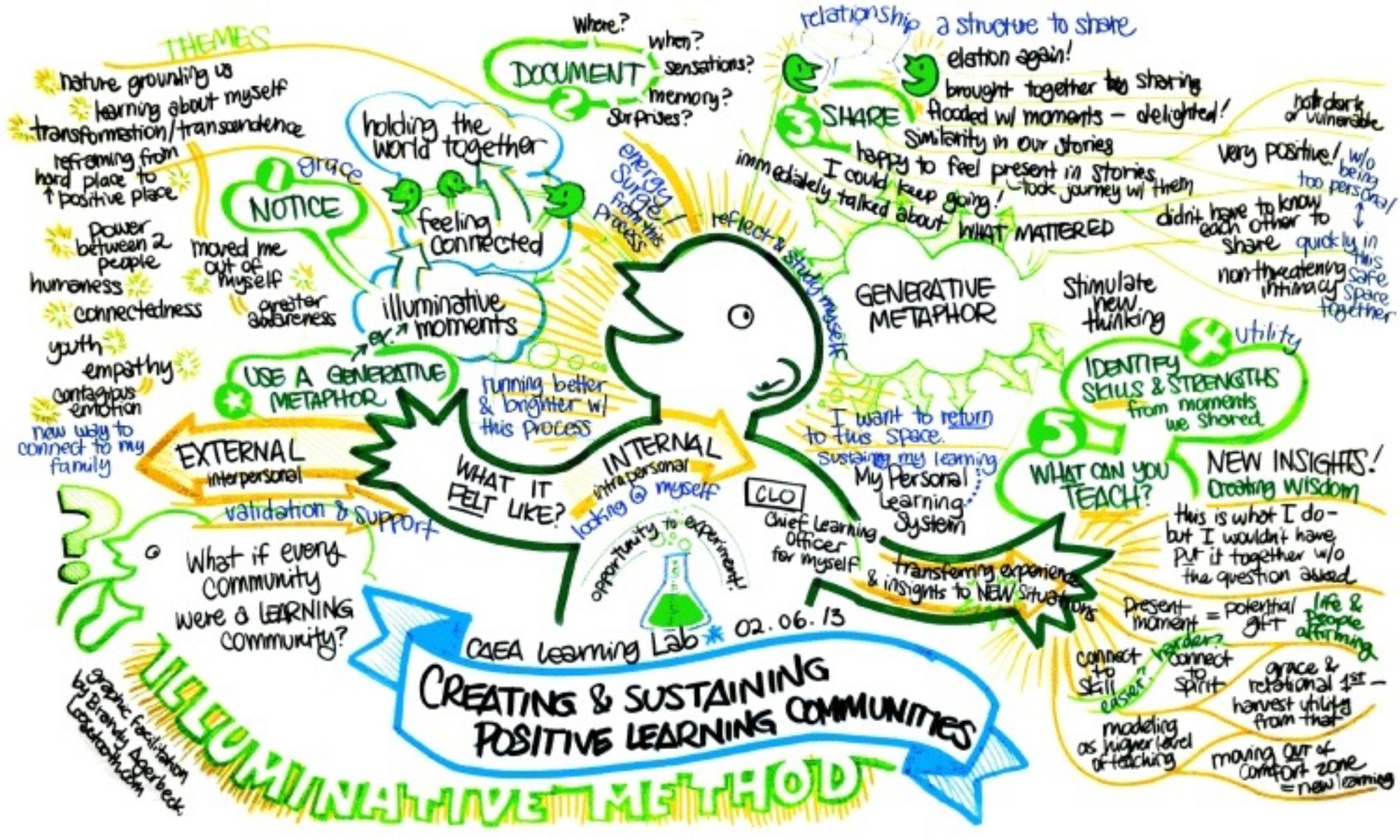Comments from people who have taken part in the Illuminative Method
I began to place more importance on things that I’d formerly categorize as ‘insignificant’… I paid attention to more of my life, rather than assuming ‘auto- pilot’ in-between obligations/events.
For me, the study was a catalyst to find something inspiring in everyday.
It was an entrée into thinking more profoundly…it may have been the door that opened to thinking about myself in the bigger scheme of things.
We talked a little about our different experiences and that they were just so different, some were incredibly personal and very specific. It was just a wonderful feeling, how we shared and then we had some food and it was more of like a community. So it goes beyond just talking to more doing, more sharing and that is why I really felt like the meeting was so beautiful.
I remember thinking what everyone shared could be its own whole learning.
Oftentimes we are so busy doing what we think is important that we really do not take the time to notice what is going on with our family. I was thinking the way that we move now. We are just going so fast all of the time. We have the tendency to keep ourselves so filled up with so many different things that we are not really looking, we are not hearing, we are not feeling very much.
People often focus right down to what is broken and what needs to be fixed. It is innate or it is training, or cultural but it is very hard for people to change. Think about how many situations you have been in where the word ‘problem’ was used…. what’s the problem we need to work on as opposed to what do we envision that we could achieve? It just happens everywhere. It is the first thought on people’s minds and I am constantly having to reset to ‘How did I say that?’ Did I say it in a way that was problem narrow or did I say it in a way that was open.
I brought my 10 students from LLS410: Liberal Learning Seminar on Personal Effectiveness: Achieving Satisfaction, and as we were debriefing one of them asked HOW the “safe intimacy” that we agreed was present was created.
Upon reflection, I told the student I could think of three ways:
There was a lot of expectation adjusting about “experiment.” There are no mistakes in “experiments,” only data. So no way to have a sub-par performance! That takes away pressure to look good and be “successful”–it’s all good!
We were not invited to lead with our status either in or out of the room. No sales-y introductions, no table facilitators, etc. Everyone was considered equal. Also, as Dan pointed out, we led the stories not with the skills/accomplishments, but the feeling, which, (as my student Michele also noted) everyone could relate to, even though we have different skills and accomplishments. And
the fact that this wasn’t all explicitly processed with a bunch of potentially self-consciousness-inducing and inhibiting (albeit counter-cultural) “ground rules” probably also helped!
